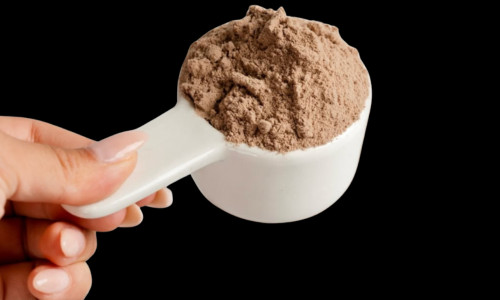Protein over 40 isn’t just important—it’s critical. As you age, your body naturally loses muscle mass, and this decline accelerates after 50. Without enough high-quality protein and consistent strength training, that loss leads to decreased strength, reduced mobility, and higher risk of injury or chronic illness.
Unfortunately, most adults are eating far less protein than they actually need. The standard dietary guidelines were designed to prevent malnutrition—not to support muscle preservation, athletic performance, or healthy aging. And when you combine under-eating protein with a sedentary lifestyle or inconsistent training, the impact compounds over time.
At Wired Fitness San Diego, we help men and women 40+ rebuild strength and slow the aging process through personalized fitness and nutrition coaching. That starts with understanding how much protein your body really needs—and how to actually hit that target.
Whether your goal is fat loss, performance, or just moving better with fewer aches and pains, dialing in your protein is one of the most effective (and overlooked) steps you can take.

Why Protein Over 40 Matters?
🔹 Prevents age-related muscle loss (sarcopenia)
🔹 Helps maintain strength and mobility
🔹 Aids in fat loss and insulin regulation
🔹 Supports bone density and immune function
🔹 Improves recovery from workouts and injury
Study: According to the National Institute on Aging, older adults need more protein, not less, to help maintain muscle, bone, and strength as they age.

Are You Eating Enough Protein Over 40?
Most adults are under-consuming protein by 30–50%. Here’s why:
🔹 The RDA is only 0.36g per pound (too low for active individuals)
🔹 The AMDR recommends 10–35% of daily calories from protein
🔹 Active adults over 40 may need 1.2–1.6g per kg of body weight
🔹 Protein needs increase with training, stress, and aging
A 180-pound adult may need 100–130g+ of protein daily—not just the outdated 56g RDA.
How to Hit Your Protein Goals Daily?
✅ Build meals around lean proteins: chicken, fish, turkey, eggs
✅ Use shakes post-workout or during busy mornings
✅ Choose Greek yogurt, cottage cheese, and legumes as add-ons
✅ Plan meals in advance to prevent under-eating
✅ Spread protein across 3–4 meals for better absorption
✅ Use tracking apps to learn your intake baseline

Combine Protein Over 40 With Smart Training
Pairing protein with resistance training supercharges your results:
🔹 Training After You Turn 40 – Age-smart strength programs
🔹 Nutrition Coaching and Meal Planning – Hit your macros and stay on track
🔹 Outdoor Group Personal Training – Coach-led, efficient workouts for every level
Smart fitness + enough protein = strength that lasts.
Need Help Hitting Your Protein Goals?
Our coaching programs for adults 40+ include meal planning, macro support, and strength training that actually works. Let’s fuel your goals.